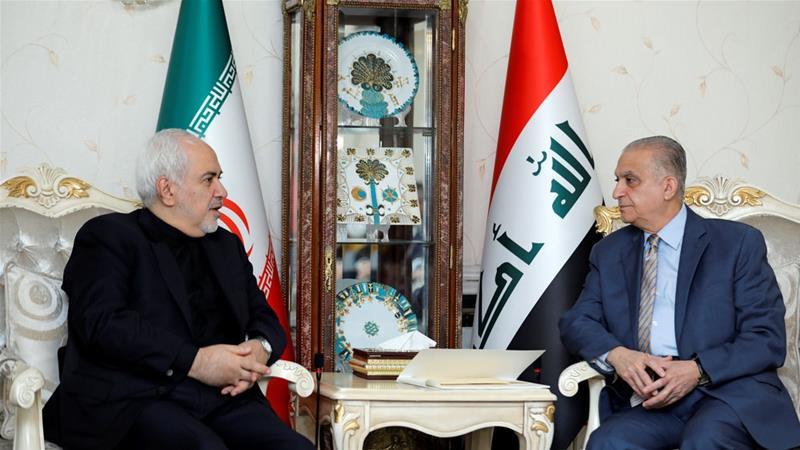Iraqi PM Abdul Mahdi says Riyadh wants to avoid war with Iran
Iraqi prime minister tells Al Jazeera Saudi Arabia wants to de-escalate tension with Iran days after visiting kingdom.
Iraqi Prime Minister Adel Abdul Mahdi says he believes Saudi Arabia is looking to de-escalate tensions with its regional arch foe, Iran, adding that it is in everybody’s interest to prevent further war in the region.
Abdul Mahdi made the comments in an exclusive interview with Al Jazeera, excerpts of which aired on Monday, days after he visited the kingdom where he held talks with King Salman.
“Nobody possesses the weapons necessary to deal their adversary a fatal blow. Chaos and destruction will hit the region in its entirety,” he said.
Abdul Hadi emphasised the importance of resolving the long-running conflict in Yemen as a prelude to achieving regional peace.
A coalition led by Saudi Arabia and the United Arab Emirates intervened in Yemen in March 2015 after Houthi rebels seized control of the capital, Sanaa, driving out the internationally recognised government of President Abd-Rabbu Mansour Hadi.
The conflict has killed tens of thousands of people, thrust millions to the brink of famine and spawned what the UN has called “the world’s worst humanitarian crisis”.
Saudi Arabia, which supports Yemen’s government forces, has long accused Iran of backing the Houthis and supplying them with weapons. Tehran says it supports the rebels diplomatically and politically but denies providing them with military aid.
Meanwhile, tensions between Saudi Arabia’s ally – the United States – and Iran have escalated since US President Donald Trump’s decision last year to withdraw Washington from the 2015 Iran nuclear agreement and reimpose crippling sanctions as part of a “maximum pressure” campaign against Tehran.
Relations were further strained after the US and Saudi Arabia accused Iran of being behind Houthi-claimed attacks that set ablaze two major Saudi Aramco oil installations on September 14.
The pre-dawn strikes on Abqaiq – the world’s largest oil processing plant – and the Khurais oilfield knocked out more than half of crude output from the world’s top exporter.
Tehran, however, denied involvement and accused Washington of using the attacks to justify future actions against it.
In his interview, Abdul Mahdi expressed hope that a solution could be found. “Everybody is open to dialogue,” he said. “Iran says [it is] willing to negotiate if sanctions are lifted; the US [also] asks for dialogue … neither does Saudi Arabia close the door for dialogue,” Abdul Hadi added.
“There are many countries, and Iraq is one of them, that can offer a solution or a place for a solution to be found.”
His comments came as Crown Prince Mohammed bin Salman – Saudi Arabia’s de facto leader – said in an interview with CBS’s 60 Minutes programme that aired on Sunday that he also preferred a peaceful resolution, describing it as “much better than the military” option.
Separately, Iraqi media reported that Abdul Mahdi planned to visit Iran soon, in an effort to reduce regional tension.
Asked whether Baghdad had any information about who was behind the attacks last month against Iranian-backed militia targets inside Iraq, Abdul Mahdi said the government had “indications” Israel may be responsible.
“Some of the investigations carried out by Iraqi authorities provided important indications that Israel was behind some of these attacks,” the prime minister said, adding that the government still lacked “tangible evidence”.
Officially known as the Popular Mobilisation Forces, the Shia militias accused Israel of carrying out the attacks with the connivance of the US.
Israel has neither confirmed nor denied its involvement.
Inside Story
Could Iraq be pulled into a conflict between the US and Iran?
Source: Read Full Article




